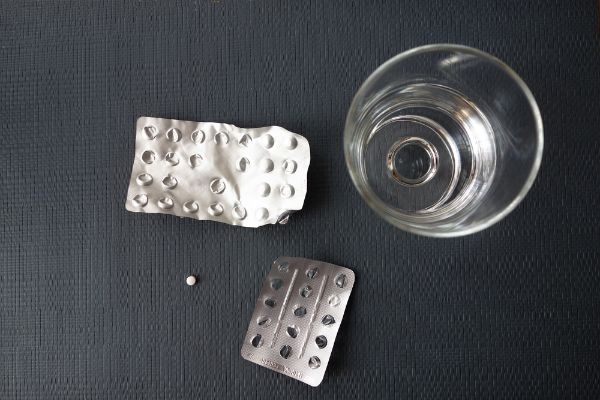
Prescription medicine shortages already exist in the United States, but according to industry experts this week, they might get much worse as a result of China’s large coronavirus outbreak, which is driving up drug use there while also cutting back on manufacturer output.
The South China Morning Post described on Tuesday that the lingering effects of the Chinese coronavirus epidemic are combining with seasonal respiratory infections to increase the need for various medicines, while labor shortages caused by the coronavirus are impeding factories throughout China, a major provider of pharmaceuticals.
120 medications have been classified as being in limited supply by the U.S. Food and Drug Administration (FDA), while research from the Pharmacists of the American Health-System estimates the number at 160. When compared to the all-time highs that was reported in 2020, which was the first year of the Chinese coronavirus epidemic, shortages are still uncomfortably near to those levels even if they somewhat improved in January.
Because Chinese goods are so attractively inexpensive, several hard lessons concerning the susceptibility of global supply networks, particularly those that pass through China, seem to be forgotten:
“Washington referred to the US reliance on China for medicine imports as a potential national security risk even before the outbreak. A major part of US generic medication imports come either directly from China or from third nations like India,” according to the US-China Economic Security Review Commission, which observed this in 2019. “The US imports more than 80% of API from abroad.”
“Then, when Covid-19 spread, supply chain failures and export restrictions revealed significant gaps in the medical supply networks.”
“While producing API abroad helped lower costs by trillions of dollars in the previous decade,” a 2021 White House investigation stated that this outsourcing “has left the US healthcare system susceptible to shortages of key medications.”
India is currently proving to be a less-than-ideal replacement for China due to the fact that the vast Indian pharmaceutical industry is highly dependent on China for roughly 68 percent of its ingredients, and the Chinese are becoming less willing to export those materials as domestic demand rises due to China’s coronavirus outbreak.
Despite repeated warnings that relying too much on China is risky, neither the local U.S. pharmaceutical sector nor any of the “near-shoring” alternatives can match the production of China’s 50,000 drug factories.
The extreme-left publication New York Times (NYT) observed in December that China had a drug panic as a result of the Communist government’s abrupt “pivot” from harsh lockdowns to almost no coronavirus restrictions at all. Chinese residents just stampeded into pharmacies and purchased everything that sounded effective for fevers and respiratory issues as a result of their fear and confusion, causing shortages that are still having an impact on the home pharmaceutical business.
Chinese customers, according to a report published last week by the left-leaning television network CNN, are irate, terrified, and prepared to use illegal means to get medicine that is in limited supply. The supply chain employed by American drug sellers is put under additional stress since these black market dealers acquire the majority of their goods from India.
The American-Made Pharmaceuticals Act, a legislation introduced in Congress last April that will establish a pilot program for Medicare, Medicaid, and the Children’s Health Insurance Program (CHIP) to provide preferential treatment to medications made in the United States, is the most recent attempt to encourage American pharmaceutical firms to boost domestic production. Two Republicans and two Democrats are the bill’s sponsors.
“We are aware that relying on foreign nations for essential commodities makes us susceptible to shocks and shortages in the global supply chain, whether it is for oil or medication.” Senator Tina Smith (D-MN), one of the bill’s authors, “argued that it will assist to increase domestic production and lessen our reliance on foreign pharmaceutical manufacturers.”
“During the outbreak, the Chinese Communist Party threatened to deny America access to essential medicines. To guarantee that Americans never have to rely on China for life-saving medication, it is time to strengthen domestic pharmaceutical manufacturing,” according to Senator Tom Cotton (R-AR), another sponsor.
These content links are provided by Content.ad. Both Content.ad and the web site upon which the links are displayed may receive compensation when readers click on these links. Some of the content you are redirected to may be sponsored content. View our privacy policy here.
To learn how you can use Content.ad to drive visitors to your content or add this service to your site, please contact us at [email protected].
Family-Friendly Content
Website owners select the type of content that appears in our units. However, if you would like to ensure that Content.ad always displays family-friendly content on this device, regardless of what site you are on, check the option below. Learn More





